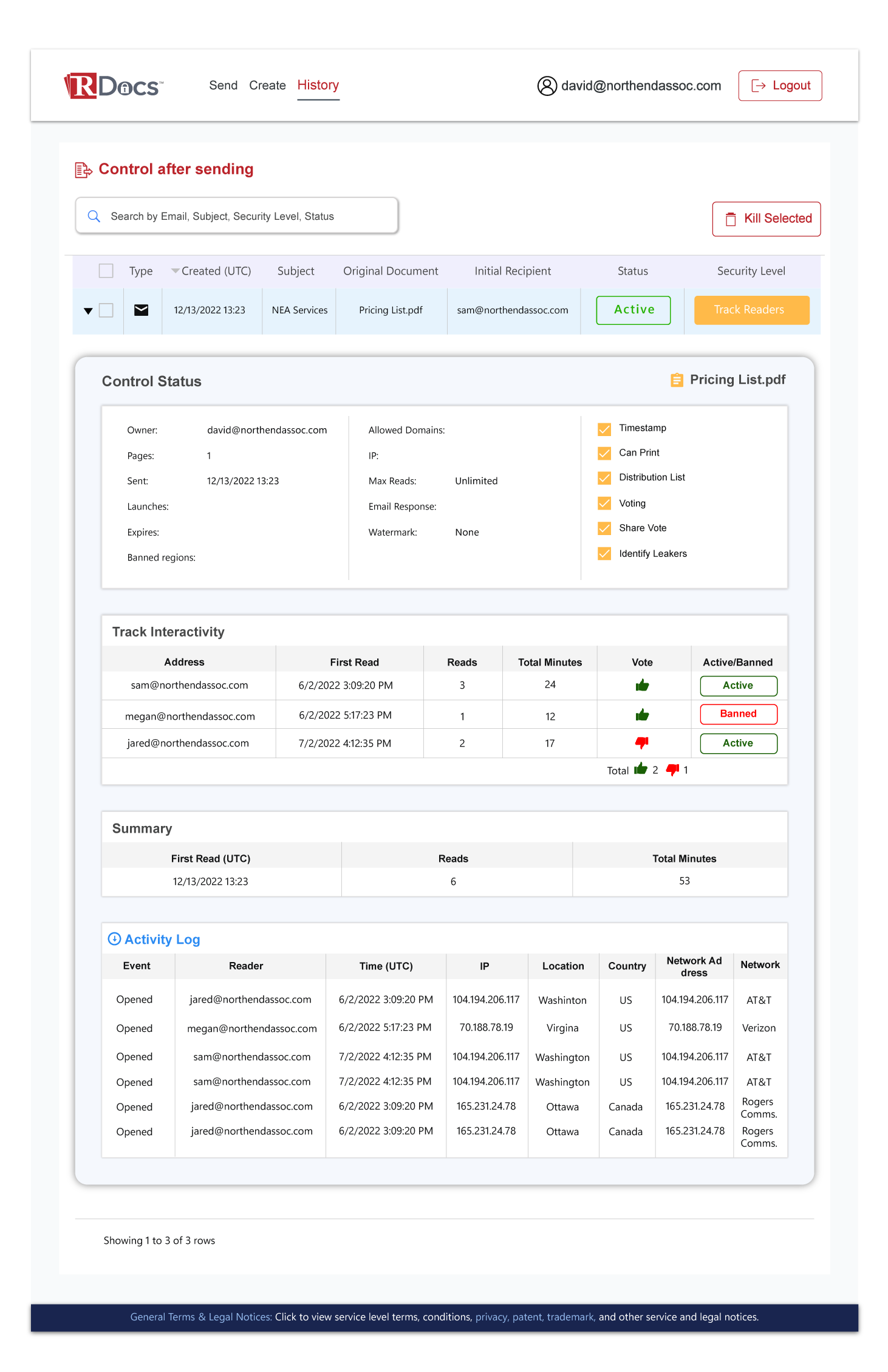
Today, in fact, a few minutes ago, I received an email from a colleague’s assistant that said, “Good afternoon, earlier today you received an email for the upcoming Summit. Please do not use the information in the file that was at the link in that email. The file contains information some participants have deemed private. The link has now been deactivated. We apologize for the error and inconvenience. A link providing access to new information is included below for your use.”
The problem with sharing sensitive files at links --- files that you intend the recipient to ultimately download and use --- is that even if the link is later deactivated, the owner of the information at the link has no way to control what has already been downloaded and further distributed.
In the example from today, yes, unfortunately, by the time I had received the second “oops” email, I had already downloaded the file and shared it with our team so that they could prepare for the summit meetings. Yes, the link, as the sender noted, is now deactivated, but unfortunately, I had previously shared the file with others, and they likely shared it with even more people on their teams.
What should I do? If I try to find all the people who I shared the file with and who they shared it with, and tell them, “Delete the file as it contains sensitive information not intended for you to see,” would they open it and study the information even more intently, with curiosity? After all, this is what I’ve been tempted to do when receiving email with that strange Microsoft follow-up email saying “recall!”
Well, there is now a better way. And, it does not require any AI 😊. What if you had a way to be able to kill a document after sent, even if it had been emailed, forwarded, shared, downloaded, uploaded, and/or opened?
Know More: Document Control

Enter the power of RDocs. RDocs gives you this power to kill a document (and all copies) that you feel someone may have sent in error or that you feel the usefulness of having that document out on the ether has become stale. If you click the “Kill” switch, it acts like a remote control over the document wherever it may reside. Once “killed”, it is as if the document contents are exploded from within. No one can access any content, even if they hold the file. Elegant data leak prevention. Blissful peace-of-mind. Try it now.

February 20, 2026
.jpg)
February 13, 2026

February 06, 2026

January 30, 2026

January 23, 2026